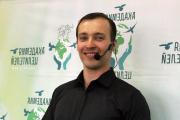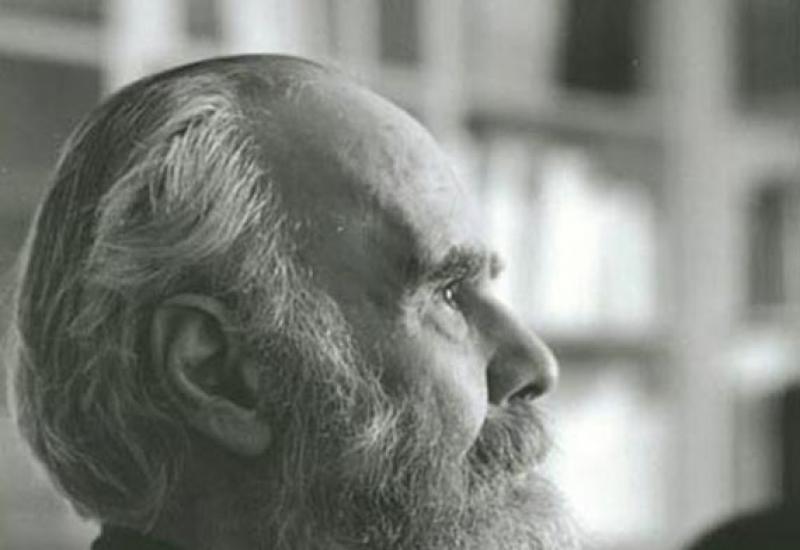Investments in knowledge yield the highest dividends. Investing in yourself is not something everyone can do. What do we usually put in?
Invested: 22 thousand rubles
Earned: 200 thousand rubles
By primary education I am a political scientist, but I have always been very interested in finance and the stock market. Therefore, in 2009, I tried training at a brokerage office and spent about 2 thousand rubles on it. It was money down the drain.
After some time, I found a real successful trader - Evgeniy Obukhov, who himself once studied with Bill Williams. I paid 20 thousand rubles for a course with him privately. He taught me for a month and greatly adjusted my understanding of the market. Plus the trader taught me some practical points. His most important advice, which was very useful to me, was to stop trading intraday and switch to medium- and long-term transactions (from 3 days to a year).
Since then I have played quite successfully. From 2011 to January 2013, I earned around 150 thousand rubles (that is, 75 thousand per year). My most successful trade during that period was in November 2012, when the market was expecting the start of QE (quantitative easing) by the Bank of Japan, and literally in 2-3 months the yen lost about 20%. From this I earned a little more than 30 thousand rubles.
Over the next few years, I was unable to trade systematically. Now I'm back and mostly trading Forex. Every day I spend no more than 5 minutes in the evening analyzing the market. This year I earned 50 thousand rubles. By the way, this figure would have been higher, but I had an urgent need to withdraw this money.
Invested: 120 thousand rubles
Earned: 0 rubles
Saved: 85 thousand rubles
In our family, learning and self-development are highly encouraged. Moreover, the return on investment cannot always be accurately tracked, since good training provides not only skills, but also inspiration and new ideas.
By first education, I am a social psychologist. It was useful mainly on a personal level: I have two small children, and thanks to the knowledge I acquired, I resolve issues in their upbringing myself, without consultants.
Now I am finishing my training as a yoga therapist at the Institute of Traditional Health Systems (ITSO). The training cost about 120 thousand rubles for two years. So far this money has not paid off. But, firstly, I have a business that I like and which I can combine with caring for my family. Secondly, over these almost two years, my family saved about 85 thousand rubles on doctors.
Thanks to the skills I acquired, I first solved my family’s problems without medication, little by little: for example, muscle spasms (such as a “blow”), a pinched nerve, or back pain. And six months ago, my mother had pain in her knee - she went to an MRI and to three orthopedic doctors. Two said that the knee needed to be operated on to remove the meniscus. The operation cost from 70 thousand rubles. The third said that we should inject hyaluronic acid (a series of injections costs about 15 thousand rubles) - this should help for several months.
Then at home we did special tests for the menisci, and they turned out to be negative. After which we tried joint mobilization techniques. After the first time, the pain went away by 70%, and the range of motion increased. And within a week the pain was completely gone. In recent months there were two more episodes of mild pain, but we eliminated them. That is, we did not give injections, did not spend money on surgery and rehabilitation.
Now I am writing my thesis and leading a group of people with bronchial asthma. Over the course of a month of work, participants reduced their medication intake by half and were no longer afraid of forgetting their inhaler at home. This cannot be called treatment, since I am not a doctor. These are breathing techniques and physical exercises that are effective for this disease. In the bronchial asthma group, yoga therapy goes along with drug treatment.
I am leading this group for my thesis, so it is free. However, while I was looking for people with asthma, there were people with chronic bronchitis who were ready to work out for money.
In February I have to defend my diploma as a yoga therapist. After that, I will begin paid work in a new specialty.
Invested: 25 thousand rubles
Earned: 50 thousand rubles
My first education was in finance, and I have been working in this field for 10 years. Previously, I worked in corporate finance, and when I reached the “ceiling” in the company where I worked, I decided to start consulting work. Now this is my main job.
I needed to supplement my knowledge in the field of corporate finance with the direction of personal finance. I first tried to study with one specialist, but I was not very satisfied. A little later, in the spring of this year, I chose the courses of financial consultant Natalia Smirnova. The training took place online in groups from April to June. The course cost 25 thousand rubles.
Natalya impresses with her professionalism and ability to explain everything in simple words. For me, such an example is motivation to grow and develop in this area. The course turned out to be very useful from a practical point of view. In addition, no products or services were imposed on us, which often happens with consultants. During the training, Natalya recommended many materials, thanks to which you can study individual areas of personal finance in more depth.
Life after training did not change fundamentally, but I realized that I was moving in the right direction. I covered the cost of the course in just a few months. At the moment, within the framework of this project, I have earned about 50 thousand rubles - provided that I am not actively looking for clients yet, I mainly work on recommendations.
Invested: 0 rubles
Earned: 0 rubles
My medical education is my family's project. I was told that I would be a doctor from early childhood. In the end, I actually enrolled inPediatric Faculty of the Medical Academy. However, by the age of 20, I realized that the feelings of acute hopelessness, fatigue, disgust and boredom with which my days at the academy passed were not normal for a person who is preparing to engage in his life’s work.
I have always been an avid reader and a big fan of pro-life conversations, which led to my encounter with philosophy. When I first read a philosophical text (One-Dimensional Man by Herbert Marcuse), I immediately realized that something very important and significant was happening here. And the more I learned about philosophy, the more “at home” I felt.
Gradually, I developed a plan for my “salvation”: in my third year I began independent study of philosophy. Since I live in Smolensk, where there is no access to high-quality additional education and there is no widespread demand for it, online courses have become the only available option for me.
From 2011 to 2017, I took over ten courses on the history of philosophy and logic, mostly on the Coursera platform. Among them were “Ancient Philosophy: Aristotle and His Successors”, “Introduction to Mathematical Philosophy”, “Think Again: How to Reason and Argue” and others.
It brought me great joy to meet foreign specialists and, in general, the Western approach to teaching. It was also important for me that most of the courses are taught in English. Still, compared to watching films in English, online courses offer a more interactive, and therefore more effective, method of teaching the language.
After receiving a medical degree, instead of an internship, I went to graduate school in philosophy. The knowledge gained during the courses was useful when studying at the university and, of course, when working on a dissertation. It can be said that the basis for obtaining a philosophy degree was formed from independent work, knowledge gained in graduate school, and from the results of taking online courses.
I tried myself as a philosophy teacher, but for economic reasons I changed my job at the university to a better paid one. Now I work as an SMM manager on a recruiting portal. In my free time, I conduct online reading seminars on philosophy for the general public. We are currently studying the works of the skeptical philosopher Sextus Empiricus. Seminars are free. I don’t take money for them, because I agree with the creators of Coursera that education should be open and free.
Invested: 200 thousand rubles
The acquired skills became the main source of income
By first education, I am a social psychologist. In parallel with obtaining this specialty, I studied German and received the additional qualification “German language translator-referent”.
In 2012, I decided to take a short-term course at the Ludwig Maximilian University of Munich. I spent about 200 thousand rubles (in terms of today’s course) on training, which lasted almost 3 months, and passing international exams. Additional education provided practical language skills, knowledge of dialects, techniques for writing scripts, cases, business correspondence, etc.
As a result, I didn’t work a day on my main diploma. Returning to Russia, she began teaching German, translating, and providing language support. The costs of training and exams were recouped in less than six months of active work.
Now I am a freelancer. The only thing that feeds me is my knowledge of the German language, and now my basic education is rather an additional advantage. By the way, I must say that investments in education never end. From time to time I buy new literature, textbooks, and subscriptions to seminars. This is an important condition for maintaining professional skills at a high level.
Friends, today we will consider the topic of “investing in your knowledge.” I think many people, when meeting strangers, have experienced that feeling when something from within compels you to turn around and look after them. These people radiate a feeling of joy, a desire to talk to them. They reek of true beauty, healthy mind and body. Even if they are outwardly somewhat ugly, visible defects evaporate and fade into the background. They are protected by some special energy field.
Moreover, it is quite difficult to meet them in our lives, because they are well-off, lead a kind of semi-closed lifestyle, and travel in their own luxury cars and yachts. If you like, they tend to shy away from crowded places. This is natural and understandable.
Looking at them moving away from us, as a rule, we experience a feeling of white envy with a simultaneous desire to be like them. Well, we fully have not only the right to this, but also the opportunity to become like this! It’s just that those we mention know a very important secret that we can successfully use. This is how it sounds: “the best investments are investments in your knowledge, your intellect, and self-development.”

Analyze what skills you lack and invest in knowledge!
What does this concept mean? In short, these include “time”, “finance”, “physical health”. They are considered among the most profitable and win-win. For example, spending time on yourself will undoubtedly leave great memories and emotions for a long time. Moreover, they will create new ones, motivate new initiatives that will give additional dividends.
Why are these investments especially expensive?
Firstly, they definitely do not lose their price. To be convincing, let’s assume we invested one million rubles for the construction of some objects, but as a result, the market value jumped sharply downward and the object depreciated in value.
They cannot depreciate! Health cannot depreciate! Your positive emotions and feelings from some exciting trip, vacation in unique places of nature cannot depreciate! They will remain in your memory and will become even more valuable to you over time!
How to do investing in your knowledge? How to spend your personal time:
- reading books that are useful for our mind and heart;
— attending professional webinars promoting us;
— independent development of one’s creativity (for example, creating and maintaining a personal website);
— travel, tourism, recreation;
- physical health.
If you want to go somewhere, try something, do not extinguish this desire, because these events will give you a special, invaluable range of positive impressions, which will undoubtedly give impetus to new creative ideas. In other words, investing in your knowledge creates the preconditions for further successful intellectual and physical growth.
How to achieve this state? This requires a professional teacher who will convey his concentrated skills, the necessary motivation and impulse for self-realization. This was not available before. Now, with the Internet, it is possible to find the best professional teachers and coaches.
And so, if you want to leave a mark, don’t mark time, plant and grow a useful tree inside yourself and it will constantly bear fruit for you. And then some time passes... people begin to gradually turn around after you and you feel pleased because you have achieved your cherished goal with the help of smart and correct investments -.
Friends, at first glance this is a simple philosophy of becoming rich, not only physically, but above all spiritually. In fact, to achieve such a state, a person is required to have maximum concentration and determination in moving towards the intended goal. On this path there will be many factors, both concomitant and hindering. All the time you need to keep your nose to the wind and navigate the surrounding situation. It is important to remember that money is not an end in itself, but a means to achieve a goal.
Friends, I’m glad to see you on the pages of my website and I will be grateful if you leave a review or comment!
Good day, dear friends! This article is participating in the “Lazy Contest for the Best Article” on the Lazy Investor blog and we will talk about investing, of course.
Many people will think that they are not interested in investing and that they have never engaged in it and do not plan to, but this is not so.
After reading the article, you will understand that we are all investors, but we don’t always realize it.
From the article you will learn:
- about my first investment experience;
- Is investing a passive source of income?
- where is the best place to start investing?
So let's start with my first investment experience. If you think that I will tell you how I immediately made a solid profit and how great everything was, then you are mistaken.
My first investments were unsuccessful. Who is guilty? Dishonest companies that disappeared with my money? No. It's my own fault. 
Because the desire to make as much profit as possible and as quickly as possible was stronger than common sense.
Because I invested in something I didn't understand at all. Because she invested everything in just one, forgetting about the need for diversification.
And the result turned out to be quite predictable. True, I was lucky in two things: I didn’t invest my last money, but the amount that I could afford to lose, and secondly, this experience served me as a good lesson.
Failure is just a small step on the path to success. In addition, failures are excellent teachers, you just need to draw the right conclusions from them.
What conclusion did I draw? is a great way to increase your money, but it is far from a passive source of income. Yes, it requires less time and can be easily combined with other types of income.
But to become a successful investor, you need to understand at least a little about the area in which you are investing. That is, an analysis of the situation is necessary. Warren Buffett, the greatest investor, said:
Never invest in a business you don't understand anything about.
You should have heeded his advice.
What about trust management? You'll think. After all, it exists precisely for this purpose: to entrust your money to professionals who will invest for you.
But in order to choose a reliable manager, you need to study his activities, successes, and reviews of other investors. Yes, and it is also necessary to control his actions. That is, it requires some action and knowledge from you.
Even when you give money to a bank (the least profitable, but the most reliable investment instrument), you need to study its activities, assets, reliability, so as not to choose one that will go bankrupt in a few months.
In addition, even having already invested money, you need to constantly monitor the situation and analyze it. I'm not even talking about PAMM accounts, you can't do without knowledge.
But we perceive investing as a passive source of income, and very often it is this perception that leads to failure and loss of money.
In addition, when we hear about investing, we immediately imagine that it is an investment of money with the aim of making a profit. Bank deposits, forex, stocks come to mind. But there is another way to invest. Not always obvious, but quite reliable.
Where should you start investing? And you should start, in my deep conviction, by investing in yourself, in your education and knowledge.
In principle, every person does this, but they just don’t perceive it as an investment.
I think most of you have received higher education. But did you treat it as an investment?
After all, you are investing your time and money to learn a profession that will bring you income in the future. And this future income will directly depend on your choice now. If we all viewed learning as an investment, we would make more informed choices.
For example, you would choose a specialty based not on prestige, but on demand. And thus this will avoid the following situation:

The same approach can be applied to an already working person. For example, you want to increase your salary several times. Write your honest resume. We love to exaggerate our virtues. Knowing a few words in English, we write about fluency.
In this case, this is not required, because no one except you will see your resume. After compiling, go to job search sites and study similar vacancies, but with a salary several times higher than yours. And look at the requirements.
After analyzing the situation and finding out what knowledge and skills you lack, you can invest money in your training and then find a job with a better salary, or ask for an increase at your old job.
And these are just a couple of examples of how investing in yourself will help you reach a new level of income. Even when we buy some kind of course or training, we invest in ourselves.
Playing sports is also an investment in yourself. By being in good shape and in good health, you will work more efficiently and get much more done.
Imagine that you are an enterprise and your knowledge is an asset. At first, you easily outperform your competitors.
But time passes, the world is developing rapidly, new technologies appear, and you forget to invest in your own enterprise and update your assets. A company that does not invest in its own development takes on big risks.
As bloggers, we constantly respond to innovations in search engines and master new sales technologies. Similarly, in investing you cannot be passive, you need to constantly learn.
Investing in yourself is the safest investment that is sure to produce results.
Benjamin Franklin said:
Investments in knowledge always yield good interest
And if you decide to invest in PAMM accounts or stocks, then invest in yourself first, that is, learn as much as possible about your chosen area of investment.
Learn from the experts. And then you will achieve success faster.
Investing in yourself is a popular and at the same time incomprehensible topic for most modern people. Only a few today have appreciated the benefits of investing money in their development and are already using a personal brand for their benefit.
Anna Bessmertnaya, personal PR manager, gives a recommendation in this regard: “Personal brand is a phrase that has set people’s teeth on edge. But this is really something worth investing time, effort, resources and emotional investment into. You can also invest money by finding a professional who will handle personal promotion.
You may be fired, you may go bankrupt, and the company may go bankrupt, but the opinion formed in people’s heads about your professionalism will guarantee that you will quickly recover from failures, find a new job, or even start practicing on your own. By investing in personal promotion, you provide yourself with clients, clients, partners and the support of an audience that becomes an advocate on your behalf.”
As a rule, the problem of investing in yourself and your development lies not in the lack of finances, but in the inability to distribute them correctly or in a lack of faith in the prospects of such an investment.
Investing in yourself requires three resources, all of which are available to anyone: strength, time and money. And if the financial aspect is purely individual, then everyone can find the strength and time. Professional development requires investment, and everyone has their own motivation for growth: someone is looking for career advancement, someone is looking to change jobs and do something more exciting, someone is looking for recognition and leadership in their desired industry. There are many examples where people, through investment in development, came to the heights of mastery and recognition. However, many are reluctant to use the available resources for themselves.
Today, the most relevant are three areas of investment in oneself: intellectual development, health and visual attractiveness, and psychological development. Let's talk about each in more detail.
1. Investments in intellectual development
The development of intellectual potential opens the door to new acquaintances, interesting work, recognition and demand for a person. Investments in education involve not only financial investments, but also time and effort. Finding time to learn new things is quite easy if the topic is interesting and a high goal provides motivation. In this case, you can sacrifice leisure in favor of a bright future. Investing in self-training is easy: many trainings, seminars, online conferences and webinars at an affordable price can significantly improve your professional level. At the same time, it is important to distinguish online fraud from profitable and popular offers.
Studying specialized literature will help to significantly expand your horizons, gain useful knowledge and skills that can bring tangible profits in the future. High-quality printed publications are quite expensive, so when buying books, you should give preference to literature that provides information that is relevant and necessary for development.
Getting an education, taking courses or training will help you learn structured and useful information. Thanks to the collective learning system, you can make useful contacts, learn from the experience of colleagues and like-minded people, and analyze examples of situations that arise in the process of work.
Daniil Kirikov, managing partner of the international agency EWG, says: “Decide on your goal. Courses, webinars, books - all of this is worth the time and money only if you know exactly what you want to achieve. Understand what specific skills you need to achieve your goals and how much time it will take to learn. After this, you can proceed to drawing up a detailed plan, which must be strictly followed.”
2. Investing in psychological balance

Creating optimal conditions for a comfortable life, a reasonable balance of working time and rest, regular trips and trips make life brighter and more eventful. Experts recommend visiting cinemas, attending theater premieres, and visiting zoos and museums for comprehensive development.
Visiting hobby groups, yoga classes or cultural events in your city will not only give you strength and fill you with positivity, but will also allow you to look for ways to improve yourself in areas unexpected for you.
Natalya Sevastyanova, coach, trainer at the Academy of Life Management, reports: “They often advise investing in your education, but here I am more inclined to invest in peace of mind. I regularly consult psychologists and work on goals with coaches. When you understand exactly what you need, then it makes sense to get additional education. Very often I see how people study and simply cannot stop, it seems to them that just a little more and I will become a professional. In fact, it’s high time for them to put their knowledge into practice! Knowledge should not lie like a dead weight; remember this when you are about to get your next “crust”.
Daniil Kirikov also confirms: “You don’t need to limit yourself to your professional interests. Expand your knowledge about the world, don’t be afraid to discover new directions and hobbies. This not only helps you remain a well-rounded person, but allows you to look at many work tasks from a new angle. After all, life hacks and innovations are often formed at the intersection of areas of knowledge.”
3. Investments in health and attractiveness

A healthy appearance and neatness are a sign of a successful person. Cosmetic care, medical care, and sports increase self-esteem and energize. Healthy teeth, well-groomed hands and stylish, neat clothes will work for their owner. Such investments in yourself are completely justified.
Regular visits to a cosmetologist and hairdresser will benefit not only girls: a well-groomed man is more attractive as an interlocutor, colleague or business partner.
Take care of your health comprehensively: join a gym, have regular preventive examinations with doctors, install water filters and air conditioning at home. The quality of life and self-perception will become significantly higher.
“Keep yourself in good shape. Health is directly related to efficiency. Proper nutrition is the key to good health. Play sports, it will give you extra energy. Don’t forget to walk, breathe fresh air, and get enough sleep, not only on weekends. Don’t put off going to the doctor if necessary.” - says Daniil Kirikov.
“One day, sit down and write down what really matters to you, identify a few core values and invest in them! Of course, I recommend starting with health and physical activity. The singer Madonna once gave advice to girls, instead of buying an expensive outfit, to invest money in sports that will make the body such that any dress will fit perfectly.” — Natalya Sevastyanova.
Many of our readers know that investing money successfully is quite a difficult task. How much money to invest, how and which stocks and indices to choose, how to optimally create an investment portfolio - we will try to find answers to these questions through quotes from successful global investors. Markets will always fall or rise, but good investment advice will always come in handy!
1. “Investing in knowledge pays the best dividends” - Benjamin Franklin
The best investments are investments in knowledge of how to invest. First of all, you need to read books, articles, websites about the basics of investing and understand what to invest your money into. And before making an investment decision, you need to study the current state of the markets and companies in which you plan to invest your money.
2. “Invest in yourself. Your career is the engine of your wealth." - Paul Clitheroe
We all want wealth, but how can we get it? How to become rich? Wealth begins with a successful career - after all, you need to collect initial capital for investment. Your successful career depends on your knowledge, skills and professional connections. Invest in yourself - graduate from the best school and university, buy books, go to work where you can acquire the necessary skills (even if you have to work for a slightly lower salary). Accurately identify your talents and find a way to turn them into a money-making machine. A successful career will help you create initial capital for investing and may give you great ideas for investing your capital. This way you can become a successful investor and know how to invest money correctly.
3. “How many millionaires do you know who became rich by investing in bank deposits? That's it." - Robert G. Allen
Investments in bank deposits are relatively safe, meaning you are unlikely to lose your money. But you won’t get huge profits from such investments: deposit rates are relatively low and in many countries do not exceed inflation. But don’t rush to transfer all the money from your bank accounts to broker accounts. Bank deposits are a great place to keep your safety net (markets are not).
4. “Don’t look for a needle in a haystack. Just buy the whole haystack!” - John C. Bogle
There are hundreds of markets and thousands of stocks and mutual funds in the world. What stocks and mutual funds should I invest in? Finding the best investment is not easy at all! You need to spend time studying the macroeconomic situation, researching individual companies, following business news, that is, keeping your finger on the pulse of the markets. Most people don't have the time or desire for this. Therefore, the best thing for most people is to invest in the entire market at once, that is, buy the entire haystack. The best way to invest for most people is to buy index funds.
5. “Know what you own and know why you own it” - Peter Lynch
This is especially true for those who invest not in index funds, as I recommend to most of my readers, but in individual company stocks. Before investing in a company, conduct a thorough analysis of its activities. What the company does, what it produces, whether its activities are profitable, who runs the company - these are just some of the questions you need to answer. But remember that the situation may change in the future. A good investment today may become a bad investment in the future. Therefore, you need to regularly re-evaluate your investments.
6. “We don’t need to be smarter than everyone else. We must be more disciplined than others." - Warren Buffett
Discipline is what separates a successful investor from an unsuccessful one. When choosing which company stock to buy, analyze different companies using the same methodology (whatever it is, you can develop the methodology yourself), and buy only stocks that meet all of your criteria. After purchasing shares of a company, be clear about what you will do if the share price falls or does not rise. If you decide that you will sell a stock if its price drops 10%, then be sure to sell as soon as that happens. If you are not disciplined, the stock price will fall by 20-50-90%, and you will continue to convince yourself that “growth will begin someday.” Lack of investment discipline is the shortest path to losses.
7. “I will tell you how to become rich. Close the doors. Be afraid when others are greedy. Be greedy when others are fearful" - Warren Buffett
Be prepared to invest when the market is down. But be prepared to sell everything and exit the market when it is at its peak. Here's a simple example. You probably remember the 2008 crisis, when stock prices fell every day and very quickly? Most people were scared and withdrew money from the market. But the crisis has passed, and shares of the S&P500 market have grown 2.6 times since March 2009. Those who bought shares during the crisis were able to make a good fortune. Do you think you've missed your chance? Don't worry, there will be a new fall, and there will be a new rise, and there will be a new opportunity to get rich in the market. But will you be ready for this, and will you be able to use this opportunity? Will you have the cash and courage to buy shares during the worst moments of the crisis? This is one of the main secrets of how to become rich.
8. “Wide diversification is only necessary when the investor does not know what he is doing” - Warren Buffett
If you are just starting to invest and are not yet very confident in your knowledge and abilities, then do not buy shares of one company with all your money. Diversify, that is, buy shares of different companies and mutual funds, and see how right you were in your analysis and assumptions about the future growth of these shares. But when you have already become an experienced investor and understand what works best for you, then you can invest all your money in one or two or three shares or mutual funds - this way you will have a chance to get greater returns and become a successful investor.
9. “Investors should be skeptical of models of markets and stocks based on historical data. These models, built by various smart people who use terms that only the "initiated" understand (such as beta, gamma, sigma and the like) - they can make a big impression on you. However, quite often investors forget to understand the assumptions behind all these models. Beware of formula nerds - Warren Buffett
There is a large amount of literature and websites on technical analysis of markets. Analyzing trends is not a very difficult task, but it is an exciting task, and many novice investors are interested in technical analysis. However, remember that past results and trends do not guarantee future results. You need to conduct regular fundamental analysis of the macroeconomic situation, individual markets and companies. Using only technical analysis, you risk losing. Short-term investing based on technical analysis is essentially speculation, not investment.
10. “Investing should be like watching paint dry or grass grow. If you want excitement, take $800 and go to Las Vegas." - Paul Samuelson
If you think that investing is gambling, then you are investing money incorrectly and will probably lose your capital. If you're having fun investing, if you're enjoying the process, then you're probably losing money. Successful investing is a lot of boring work that requires preparation and patience. But with the right investment, you will receive large profits years later.
The world of investment is a complex world and not easy to live in. But if you do good homework and are disciplined in your investments, you will be successful in the long run and become rich. Well, when it’s difficult for you, when the markets are falling, when you don’t understand what’s happening, when you’re scared, then re-read these quotes from successful investors - they will help you calm down and make the right decision.














